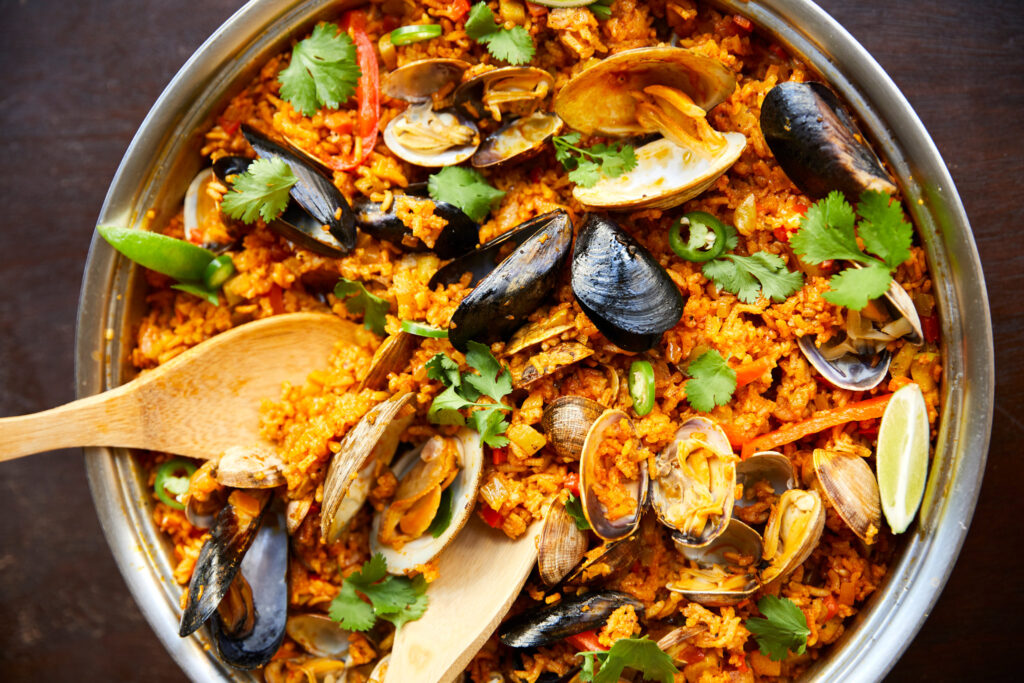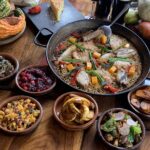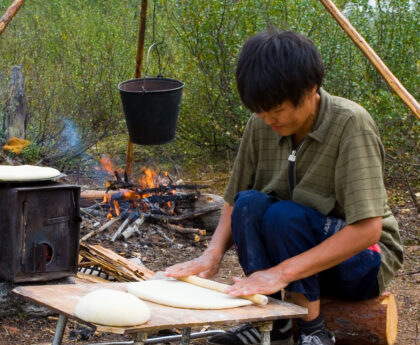Classic French Cooking Techniques and Their Influence on Modern Cuisine
Introduction
French cuisine is renowned for its elegance, precision, and exquisite flavors. At the heart of this culinary tradition lies a set of classic cooking techniques that have shaped the world of gastronomy and continue to influence modern cuisine today. From mastering the art of sauce-making to perfecting the delicate balance of flavors, French cooking techniques have set the standard for culinary excellence. In this article, we will delve into the essence of classic French cooking techniques and explore how their influence has transcended borders, leaving an indelible mark on the global culinary landscape.

The Foundation of French Cuisine
French cuisine is built on a foundation of culinary principles that emphasize the importance of technique, fresh ingredients, and attention to detail. These principles are rooted in the concept of “mise en place,” which translates to “everything in its place.” Mise en place involves careful preparation and organization before cooking, ensuring that ingredients are ready and cooking proceeds smoothly.
Classic French Cooking Techniques
- Sauces: The mastery of sauces is a cornerstone of French cuisine. From the velvety richness of hollandaise to the robust depth of demi-glace, sauces add complexity and enhance flavors in dishes. French culinary tradition recognizes five “mother sauces” as the building blocks for countless variations: Béchamel, Velouté, Espagnole, Tomato, and Hollandaise.
- Sautéing: Sautéing is a technique in which food is quickly cooked in a small amount of oil or butter over high heat. The process seals in the flavors and caramelizes the surface of the food, creating a delectable combination of textures and tastes.
- Braising: Braising is a slow-cooking method in which meat or vegetables are first seared and then cooked in a liquid, often with aromatics, over low heat. This technique results in tender, succulent dishes with rich, concentrated flavors.
- Poaching: Poaching involves gently cooking food in a liquid, such as water or broth, at a low temperature. This method is commonly used for delicate proteins like fish and eggs, preserving their tenderness and natural flavors.
- Flambéing: Flambéing is a dramatic technique in which alcohol is added to a hot pan and ignited to create a burst of flames. This process not only adds a unique flavor to the dish but also enhances the visual appeal of the preparation.
Influence on Modern Cuisine
The influence of classic French cooking techniques on modern cuisine cannot be overstated. French culinary traditions have inspired and been integrated into the culinary practices of chefs and home cooks around the world. Some ways in which French cooking techniques have left their mark on modern cuisine include:
- Fusion Cuisine: The blending of French techniques with ingredients and flavors from different cultures has led to the emergence of fusion cuisine. Chefs combine traditional French methods with ingredients and spices from other culinary traditions, resulting in exciting and innovative dishes.
- Emphasis on Fresh and Seasonal Ingredients: The French reverence for fresh, high-quality ingredients has become a standard in modern cuisine. Many chefs prioritize sourcing local and seasonal produce, emphasizing the importance of showcasing the natural flavors of the ingredients.
- Artistry in Plating: French cuisine has elevated the art of plating, with a focus on aesthetics and presentation. Modern chefs draw inspiration from French plating techniques, creating visually stunning dishes that are as pleasing to the eye as they are to the palate.
- Culinary Education and Influence: French culinary techniques continue to be taught and revered in culinary schools worldwide. Aspiring chefs often seek training in classic French cooking to build a strong foundation for their culinary careers.
Conclusion
Classic French cooking techniques are a testament to the artistry and precision of French cuisine. From sauces to sautéing, each technique reflects a commitment to excellence and a deep appreciation for the culinary craft. The influence of French cooking extends far beyond the borders of France, shaping modern cuisine and inspiring culinary creativity around the globe.
As we savor the flavors and techniques of classic French cooking, let us celebrate the enduring legacy of this culinary tradition and recognize its profound impact on the world of gastronomy. French cuisine continues to inspire chefs and food enthusiasts alike, perpetuating the art of culinary excellence for generations to come.


